R+D+I
Innovation has always been a key element in the history and growth of Acesur, being a strategic part of the business vision of our century-old company. After all these years of intense innovative work carried out by different departments, in 2012, Acesur decided to channel, organize and promote this innovation work through the creation of an independent Research, Development and Innovation (R+D+i) department. This will optimally address all the scientific-technical challenges posed by our clients and the markets, no matter how demanding they may be.
Likewise, the R&D&I Department was also created in response to a basic need for internal improvement by the company, with the clear objective of innovating its products and processes, and consolidating a differentiation from the competition in a traditional sector such as olive oil.
Physically located in Vilches (Jaén), it has its own facilities, with a physical-chemical and microbiological laboratory, an experimental kitchen, a pilot plant for the preparation of sauces and emulsions and work areas for technicians. In turn, it has the analytical support of the Tarancón, Dos Hermanas and Vilches laboratories.
The essential objectives of the department are the research and development of new products according to current consumer needs and market trends; the development of research projects aimed at valuing our by-products and/or waste; study of our products, processes, analytical techniques, recipes and ingredients with the aim of optimizing them, in search of maximum efficiency and quality.
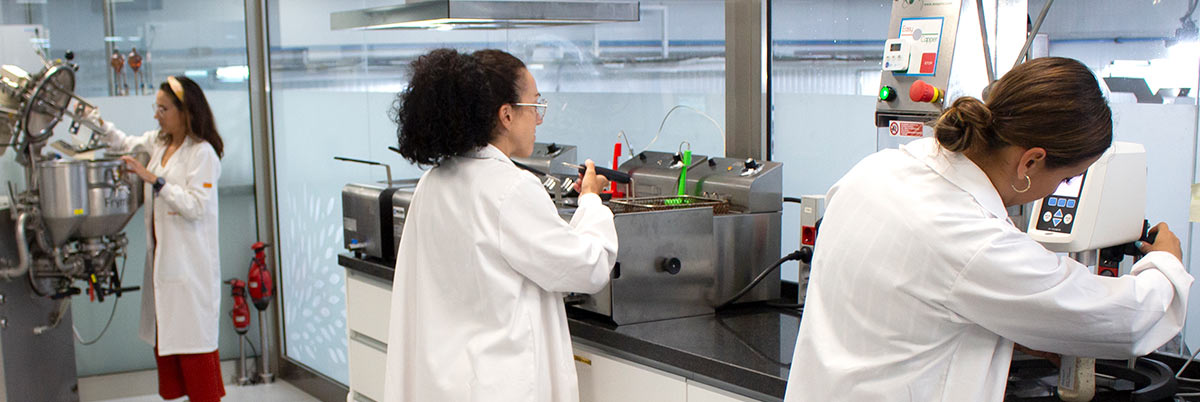
THE THREE FUNDAMENTAL PILLARS OF R&D&I OF ACESUR
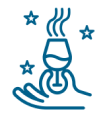
Improving the organoleptic and nutritional quality of our products, as well as the development of new foods adapted to customers and new market niches.

Research and development of disruptive technologies and obtaining new value-added products from our by-products, in a context of promoting the circular economy, through collaboration with leading companies, universities and technology centers in the agri-food sector and partners.

Improvement of the efficiency of the processes, through optimizations and evolutions of our technology.
R&D PROJECTS
Sometimes the R&D&I Department, in carrying out its objectives, tackles very complex scientific-technical challenges whose solution is not only not obvious, but also involves a profound process of reflection and research, which must be organized into tasks , establish a time frame and assign a budget, generating what is called an R+D+I project.
This is why a significant portion of the work undertaken by the R&D&I Department is focused on projects, often in collaboration with partners, suppliers, clients, and even public organizations, forming multidisciplinary consortia that facilitate the successful completion of R&D projects. These efforts address high-level challenges that enable us to advance in the development and improvement of our products and processes.
In this regard, Acesur is not only a member of organizations specific to the olive oil sector, such as Asoliva or Oriva, but also of cross-sector organizations like FIAB (Spanish Food and Drink Industry Federation). At the European level, Acesur is a member of EIT FOOD, where it stands out not only as the sole representative of the olive oil sector but also as one of the few private Spanish organizations within this consortium of 60 European companies.
NATIONAL PROJECTS

SINGLE-PACK
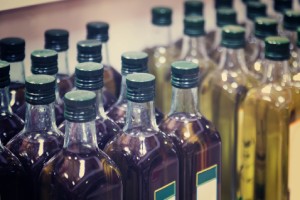
OLIVE-PACK
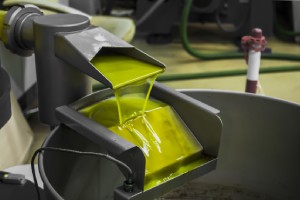
NEW FILTRATION
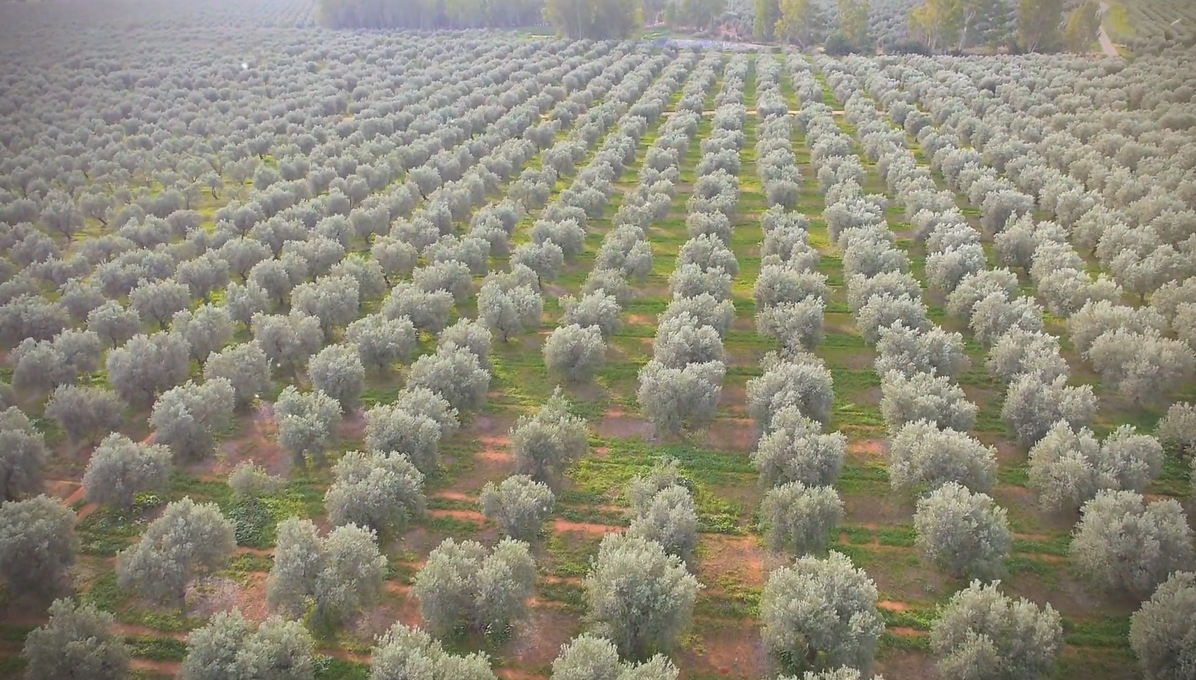
SMART-O-LIVE
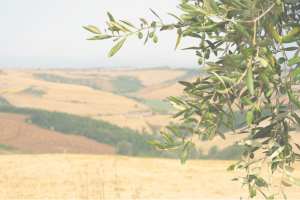
BIOLIVA

OLE
SINGLE-PACK
The project “SINGLE-PACK: Development of New Biodegradable-Compostable Single-Serve Packaging for Sauces and Oils” aims to create a new 100% paper single-serve container (biodegradable and compostable), completely free of plastic in its composition. This packaging will be suitable for storing sauces and olive oil, becoming the first recyclable single-serve paper packaging for blue bin disposal and compostable use.
Currently, there are no 100% paper single-serve containers on the market. Such packaging typically includes a thin layer of flexible plastic that provides the paper with barrier properties for proper preservation and product sealing.
Acesur aims to take a step further by researching different coatings to establish a multicoating concept. When applied to paper, this would provide the necessary properties such as grease resistance, oxygen barrier, and sealing capability required to properly preserve our products. The goal is to develop a revolutionary, innovative, and sustainable material.
The SINGLE-PACK project is co-funded by the Centre for the Development of Industrial Technology (CDTI) and the European Regional Development Fund (ERDF).
The project is being led by Acesur and is being carried out in collaboration with AINIA. It is currently underway, with its completion scheduled for August 2024.



OLIVE-PACK
The “Development of new sustainable packaging for olive oil” project aims to value the waste from the production of EVOO, proposing the research and development of new processes aimed at obtaining cellulose micro and nanofibers from by-products from extraction of olive oil to obtain biodegradable food packaging.
The project has just started, specifically in April 2021, and its execution period will end in December 2023. The project is being led by ACESUR and collaborations are taking place from important technological entities such as AINIA and AIMPLAS, as well as the packaging manufacturer Logoplaste.
.
NEW FILTRATION
The “research and development of new and optimized processes through non-invasive olive oil filtration techniques” project tries to undertake industrial research, aimed at generating scientific-technical knowledge around the filtration operation. Likewise, optimizing the best time to carry out the filtration, being optimized and developing proprietary and essential filter media for this operation: filtration technology, filter media, process conditions and use of by-products.
Acesur as leader in this project will have the collaboration of the Fat Institute (IG) belonging to the State Agency Higher Council for Scientific Research (CSIC). In addition, New filtration has an execution period between June 2021 and December 2023.
SMART-O-LIVE
The SMART-O-LIVE project: “Smart Agriculture, Oil Mill, and Consumption of More Sustainable and Healthier Olive Oils in the New Agro-Industry of the Future” aims to research and develop new ICT and AI technologies. Their application to the olive oil sector seeks to achieve more sustainable, efficient, and technologically advanced production while also generating healthier olive oils. Thus, a holistic approach is undertaken, spanning from the field to the oil mill and through to packaging, where digital technologies such as sensors, edge computing, data acquisition networks, big data, machine learning, artificial intelligence, and the Internet of Things (IoT) will be implemented, as well as the combination and/or integration of some of these technologies.
The SMART-O-LIVE project is currently underway, with its completion scheduled for December 2024. The project is funded by the Centre for the Development of Industrial Technology (CDTI) with “Next Generation EU” funds under the Recovery, Transformation, and Resilience Plan: Ministry of Science and Innovation.
This initiative was driven and is being led by Acesur and involves the companies Secmotic, Kimitec-Agro, Digital Animal, and Deuser, all of which are leaders in their respective sectors. Additionally, to provide a scientifically and technically excellent perspective, the project benefits from the collaboration of public research organizations such as: Fundación CITOLIVA, the Foundation for Research and Development of Information Technologies in Andalusia (FIDETIA), the research groups BIO-349 Biological Technologies and TIC-207 Intelligent Systems and Data Mining (SIMIDAT) from the University of Jaén, and the TIC-240 Group from the Department of Instrumentation and Industrial Electronics at the University of Córdoba.



BIOLIVA
The olive oil industry is characterized by significant production of agricultural by-products during processing, such as plant residues (leaves, stems, branches) resulting from fruit harvesting, as well as alperujo (olive pomace). Traditionally, the disposal of olive leaves has involved crushing and burning these arboreal by-products. However, the environmental implications of these processes have sparked interest in exploring new and innovative processing alternatives.
The project “Obtaining Bioactive Compounds from Olive Sector By-Products” (BIOLIVA) was launched with the aim of implementing innovative and sustainable extraction technologies that use natural and non-toxic solvents, replacing conventional ones, to recover these valuable compounds from olive by-products. In addition, a portable pilot plant will be built to optimize the processes and demonstrate their applicability, thereby promoting a more sustainable approach that reduces agricultural waste.
Currently, the GO SUPRA BIOLIVA project is underway, with its completion scheduled for January 2027. The project is funded by the European Agricultural Fund for Rural Development (EAFRD) and the Ministry of Agriculture, Fisheries, and Food of the Government of Spain.
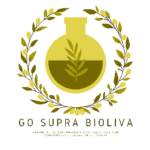


OLE
The project “Obtaining Oleuropein-Rich Products from Olive Leaves (OLE)” aims to demonstrate the feasibility of an innovative process for extracting phenolic compounds from agricultural waste generated during olive oil production. This process seeks to enable a circular economy and enhance the environmental and economic sustainability of the Andalusian agro-industrial sector. Similarly, the project also aims to study the feasibility of applying these compounds in pharmaceutical, cosmetic, nutritional, and/or food products.
The innovative nature of the project lies in the application of more sustainable extraction techniques compared to those conventionally used with organic solvents. This is achieved by replacing these solvents with natural ones, known as Natural Deep Eutectic Solvents (NADES), with the aim of extracting phenolic compounds intended for use in food applications.
As part of the project, the operational group will study the valorization of olive leaves through the development of a demonstration facility, enabling technical collaboration and knowledge transfer to the olive oil sector.
ACESUR is developing this project within a consortium led by AZCATEC TECNOLOGÍA E INGENIERÍA S.L., which also includes the participation of the UNIVERSITY OF SEVILLE. The project is funded through the European Agricultural Fund for Rural Development (EAFRD) and subsidized by the Regional Government of Andalusia through the Ministry of Agriculture, Livestock, Fisheries, and Sustainable Development, in accordance with Article 18.4 of Law 38/2003, dated November 17.
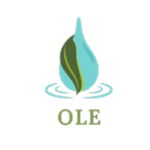


EUROPEAN PROJECTS (EIT FOOD)
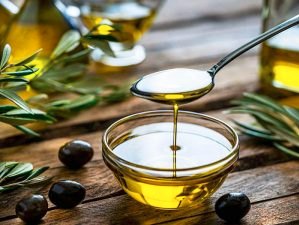
PREDIABOLE
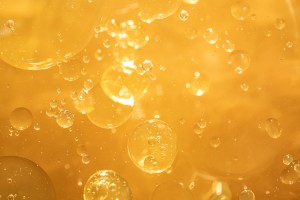
PHENOILS
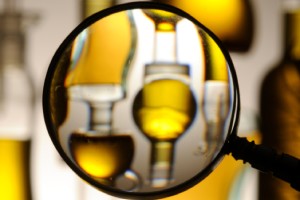
REIMS
PREDIABOLE
The “PREDIABOLE: Developing a Functional Olive Oil Enriched with Oleanolic Acid for the Prevention of Type 2 Diabetes in Prediabetic Patients” project aims to develop a new functional food that, when incorporated regularly into the diet, modulates human metabolism toward a healthy profile, preventing the prevalence of metabolic diseases, primarily type 2 diabetes.
The new product consists of an extra virgin olive oil (EVOO) enriched with oleanolic acid (OA) extracted from olive leaves (thereby promoting a circular economy). It combines the health benefits of EVOO with the functional properties of OA, ensuring that regular consumption of a specific daily amount scientifically guarantees a drastic reduction (over 51.5%) in the likelihood of developing metabolic diseases, particularly Type 2 Diabetes Mellitus, in consumers.
These functional properties have been extensively demonstrated in clinical studies conducted as part of a previous research project carried out by the Spanish National Research Council (CSIC) in collaboration with the Andalusian Health Service (SAS). In turn, Acesur has collaborated on this project for more than 10 years, which has ultimately resulted in a patent (EP18382510) owned by CSIC and SAS. This patent has been licensed to Acesur for commercial exploitation.
The execution period of the PREDIABOLE project extends from June 2022 to December 2023. The project is co-funded by EIT Food, an organization under the European Union.
Acesur is the company leading this initiative in collaboration with the University of Warsaw and Campden BRI Hungary (Campden CBHU).
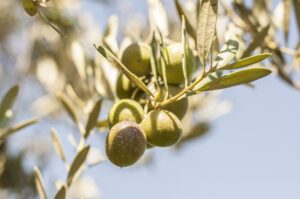


PHENOILS
The “New technologies implementation in RIS region olive mills for healthier olive oil extraction” project aims to study new extraction technologies in EVOO (electromagnetic pulses, ultrasound and cavitation) to obtain higher yields and oils richer in polyphenols and tocopherols.
The execution period of this project runs from its start in January 2020 to 2023. ACESUR has led this initiative and has the participation of important entities such as the CSIC, the Franhoufer research center, the University of Turin and the EPS company.
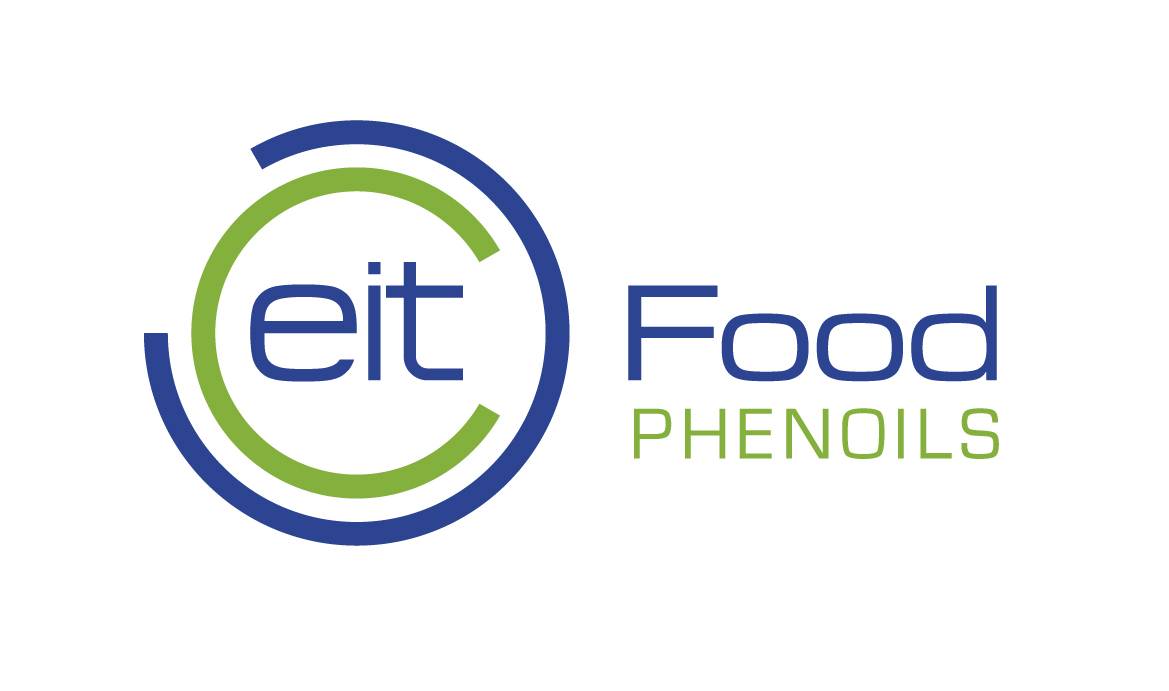
REIMS
The “Based analysis for improved traceability and consumer purchase intention of hig-end food product” project pursues the development of a new technique capable of analyzing chemical parameters of olive oil in real time and complementing the test panel with REIMS technology (rapid evaporative ionization mass spectrometry).
Regarding the execution of REIMS, its activity began in January 2020 and will be completed in December 2021.
Queen’s University (Belfast) is being in charge of leading this project and has the collaboration of Acesur, Colruyt and Matis.
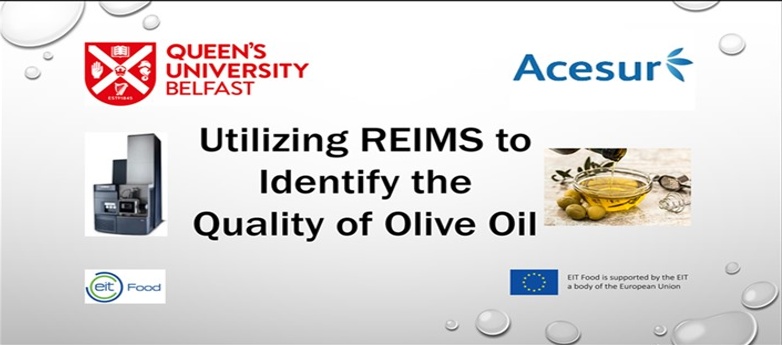
COMPLETED NATIONAL PROJECTS

EASYTASTE

PREDCAM

ALPEOCEL

HEALTHYOIL

OILOX

GUAYUPREX
EASYTASTE
Acesur has achieved its own analytical method, capable of supplying the work of the Tasting Panel with guarantees. The Easy Taste project makes it possible to predict quickly, reliably and economically the commercial category of virgin olive oils. The profile of volatile compounds, unique to each virgin oil, has been mathematically correlated with the results obtained from the test panel for each sample, generating the basis on which the predictive model that separates each oil into its commercial category has been developed: extra virgin, virgin and lampante.
Now, virgin olive oil is the only food in which sensory tasting is used to differentiate one category from another. The Easy Taste project has managed to solve a historical technological gap in the olive sector, obtaining an analytical method of sensory evaluation that complements and exceeds the Panel Test tool.
In achieving this unprecedented technological milestone in the olive sector, the collaboration of the accredited tasting panel of the INDLAB laboratory, together with the Central Research Support Services (SCAI) of the University of Córdoba (UCO), has been crucial. The equipment or “electronic nose” is operational in the Acesur oil laboratory, located in Vilches, where more than 600 samples of virgin olive oil have already been analyzed.
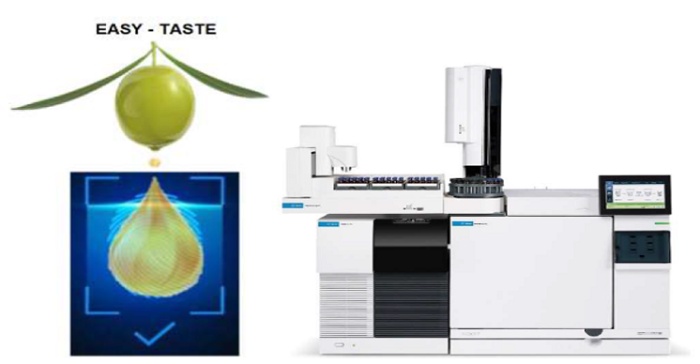
PREDCAM
The “Predictive model for the calculation of olive production in a campaign” project aims to design a precise mathematical algorithm to estimate the production of fruit in tons and its yield in the Andalusian community well in advance of the olive season. To do this, a large amount of information obtained from different variables related to the crop is being managed: climatology and production records, oil mill records, volume of the tree canopy from satellite images (covered cavity index), crop evolution from information obtained from photogrammetric techniques (vegetation indices), historical agronomic information of farms spread throughout the Andalusian territory.
Currently, the project is in its second year of execution. It was started in May 2020 and will be extended after completion in April 2021.
Acesur coordinates and leads the project and has the collaboration of the automation entity Deuser.
ALPEOCEL
The “Nanocellulose biorefinery from alpeorujo” project aims to develop new biorefinery processes for the sustainable transformation of alpeorujo and orujillo into nanocelluloses and other active compounds, through the study of their incorporation into cosmetic products, as well as in fertilizers and plant biomass.
Currently, this project is completed and its execution period was from November 2018 to June 2021, co-financed by the Center for Industrial Technological Development (CDTI) and FEDER funds.
This initiative, led by Acesur, has involved the companies Herogra, Agroisa and Inves Biofarm, all of which are leading companies in their sectors. Likewise, to provide a vision of scientific-technical excellence, it has had the collaboration of the AINIA Technological Center and the Department of Chemical Sciences of the University of Porto.
HEALTHYOIL
The HealthyOil project’s main objective is the development of new oils, extraction, refining and frying processes to improve the properties of frying oils and thus achieve more beneficial and healthy oils for domestic, catering or industrial cooking of fried products.
All this implies improvements in the final products in relation to two of the main parameters valued by the consumer, health and pleasure. In addition, this initiative aims to study the appearance of contaminants throughout the production chain.
Its execution period has been from its beginning in September 2018 to the end of March 2021, co-financed by the Center for Industrial Technological Development (CDTI) and FEDER funds.
Led by Acesur, it involves different actors, such as the participating companies Almazaras de la Subbética and Aperitivos Añavieja, technology centers, Universities and OPIs, among which Novadays, Citoliva and the University of Ávila stand out.
OILOX
The “Extra Virgin Olive Oil as a functional food” project aims to obtain new EVOO’s of superior quality with a higher content of polyphenols, having as its objective a system to demonstrate the amount it contains of these antioxidants, its provenance and stability over time.
Currently, its execution period is completed, extending from September 2018 to March 2021 and is co-financed by the Center for Industrial Technological Development (CDTI) and FEDER funds.
To carry out the OILOX project, a consortium made up of 5 entities was formed. Acesur was the company responsible for leading it in collaboration with the Almazaras de la Subbética, Valdezarza, Laboratorio Tello and Smartrural companies, together with the collaboration of the Process Analysis and Chemometrics Research Group of the University of La Rioja as a subcontracted entity.
GUAYUPREX
The “Development of a guayule extraction process” project seeks an alternative to produce rubber, specifically by extracting rubber, latex and resins from Guayule, through the adaptation study of the Acesur industrial plant in Cuenca and the development of the subsequent extraction process necessary at the pilot level.
Its execution period began in October 2018 and ended in September 2020, co-financed by the Center for Industrial Technological Development (CDTI) and FEDER funds.
Acesur led this initiative with the collaboration of the University of Castilla-La Mancha and the Provincial Agronomic Technical Institute, whose human resources and experience were crucial for the development of the project.
COMPLETED INTERNATIONAL PROJECTS
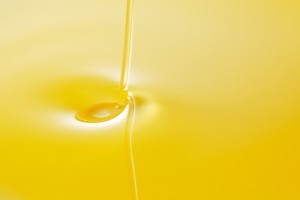
UNDERPRESSURE
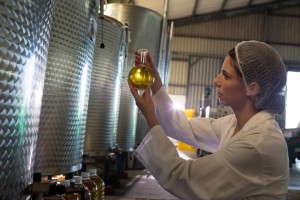
PHENOLIVA

OLEOGELS

EIT FOOD DIGITAL MARKETPLACE FOR SIDE STREAMS

EATRENDS & FOOD FASHION WEEK
UNDERPRESSURE
The “Pressure for healthier and more natural fat-based foods” project is committed to a technological solution based on ultra-high pressure homogenization (UHPH) to obtain oil-based emulsions with lower fat content, greater mechanical stability, reduction of addictive (clean(er) label) and heat treatments.
Based on this solution, different products are being developed, such as sauces and pastry ingredients, seeking for the consumer to be an active participant in their creation in order to achieve an inclusive, transparent and smarter food system.
The execution period runs from January 2019 to December 2021. Acesur is the company leading this initiative in collaboration with the AZTI Research Center, Ypsicon, Puratos and the Fraunhofer Research Center.
PHENOLIVA
The “Treatment and valorization of olive mil wastes- Application of olive polyphenols to food” project tries to implement an integrated management of waste from the olive industry using a novel process of extracting antioxidants from by-products and their revaluation in the application of matrices food. This process is a very circular procedure capable of reusing the by-products of the oil industry. As part of this project, a startup has been created to market the result of this activity.
The execution period of the Phenoliva project began in January 2020 and its activity is expected to end in 2022.
This project is being led by the University of Zurich (ETH) and the active participation of ACESUR, CSIC, the Franhoufer research institute, Maspex, Puratos, PZZ Lubella, Tymbark-MWS and the RethinkResource entity.
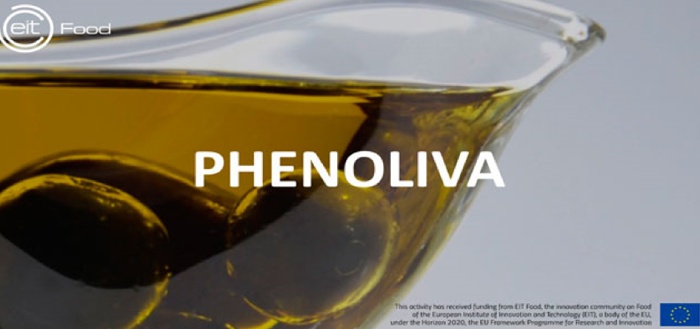
OLEOGELS
The “Healthy and sustainable replacement for saturated fat and palm oil in spreads” project aims to develop crystallized oily structures and oleogels for the replacement of saturated fats, as well as the reduction of the content of saturated fatty acids in the lipid profile of creams spreads and fillings for confectionery using unsaturated oils. All this while respecting the sensory expectations of consumers and the stability of the products throughout their useful life.
The execution period of this project was extended throughout the year of 2019, from January to December. The Fraunhofer Research Center assumed the leadership of this initiative in collaboration with Acesur, Maspex and the University of Warsaw.
EIT FOOD DIGITAL MARKETPLACE FOR SIDE STREAMS
The “EIT Food digital Marketplace for side streams” project involves the development of a digital platform to put generators and buyers of food by-products in contact, increasing the analytical knowledge of the different waste generated by European companies in the food sector. In turn, a database is created to facilitate the commercialization of said by-products, promoting the circular economy. It is expected that in the future it will also cover companies that are outside the EIT Food, the co-financing body.
The execution period of this project spanned from January 2019 to December 2020 and was led by Givaudan, which had the support of several partners such as Acesur, Colruvt, Dhöler, DSM, Maspex, Nestle, Pepsico, Puratos, Technical University of Munich, University of Reading, Tymbark, Vlevico, and Rethinkresource.
EATRENDS & FOOD FASHION WEEK
The “EATtrends & Foof Fashion Week” project is an experimental public event focused on the consumer. This trend festival will have two major events lasting 2-3 days, one in Bilbao and the other in Leuven. The main objective is to encourage the active participation of the consumer to be able to study and learn about market trends and their consequent behavior, under the philosophy of “touching, tasting and feeling food innovation”.
The purpose of this initiative was, on the one hand, to collect data and sensations from consumers and, on the other hand, to stimulate dialogue and educate consumers on the main concepts behind trends, such as health, wellness, sustainability and transparency.
With the AZTI Research Center as the leading company, its execution period ran from January to December 2019. In addition, this project has the collaboration of Acesur, Colruvt, Grupo An, KU Leuven, Eskesso, Flatev and Naturalmachines.
NATIONAL PROJECTS

SINGLE-PACK
SINGLE-PACK
The project “SINGLE-PACK: Development of New Biodegradable-Compostable Single-Serve Packaging for Sauces and Oils” aims to create a new 100% paper single-serve container (biodegradable and compostable), completely free of plastic in its composition. This packaging will be suitable for storing sauces and olive oil, becoming the first recyclable single-serve paper packaging for blue bin disposal and compostable use.
Currently, there are no 100% paper single-serve containers on the market. Such packaging typically includes a thin layer of flexible plastic that provides the paper with barrier properties for proper preservation and product sealing.
Acesur aims to take a step further by researching different coatings to establish a multicoating concept. When applied to paper, this would provide the necessary properties such as grease resistance, oxygen barrier, and sealing capability required to properly preserve our products. The goal is to develop a revolutionary, innovative, and sustainable material.
The SINGLE-PACK project is co-funded by the Centre for the Development of Industrial Technology (CDTI) and the European Regional Development Fund (ERDF).
The project is being led by Acesur and is being carried out in collaboration with AINIA. It is currently underway, with its completion scheduled for August 2024.




OLIVE-PACK
OLIVE-PACK
The “Development of new sustainable packaging for olive oil” project aims to value the waste from the production of EVOO, proposing the research and development of new processes aimed at obtaining cellulose micro and nanofibers from by-products from extraction of olive oil to obtain biodegradable food packaging.
The project has just started, specifically in April 2021, and its execution period will end in December 2023. The project is being led by ACESUR and collaborations are taking place from important technological entities such as AINIA and AIMPLAS, as well as the packaging manufacturer Logoplaste.
.

NEW FILTRATION
NEW FILTRATION
The “research and development of new and optimized processes through non-invasive olive oil filtration techniques” project tries to undertake industrial research, aimed at generating scientific-technical knowledge around the filtration operation. Likewise, optimizing the best time to carry out the filtration, being optimized and developing proprietary and essential filter media for this operation: filtration technology, filter media, process conditions and use of by-products.
Acesur as leader in this project will have the collaboration of the Fat Institute (IG) belonging to the State Agency Higher Council for Scientific Research (CSIC). In addition, New filtration has an execution period between June 2021 and December 2023.

SMART-O-LIVE
SMART-O-LIVE
The SMART-O-LIVE project: “Smart Agriculture, Oil Mill, and Consumption of More Sustainable and Healthier Olive Oils in the New Agro-Industry of the Future” aims to research and develop new ICT and AI technologies. Their application to the olive oil sector seeks to achieve more sustainable, efficient, and technologically advanced production while also generating healthier olive oils. Thus, a holistic approach is undertaken, spanning from the field to the oil mill and through to packaging, where digital technologies such as sensors, edge computing, data acquisition networks, big data, machine learning, artificial intelligence, and the Internet of Things (IoT) will be implemented, as well as the combination and/or integration of some of these technologies.
The SMART-O-LIVE project is currently underway, with its completion scheduled for December 2024. The project is funded by the Centre for the Development of Industrial Technology (CDTI) with “Next Generation EU” funds under the Recovery, Transformation, and Resilience Plan: Ministry of Science and Innovation.
This initiative was driven and is being led by Acesur and involves the companies Secmotic, Kimitec-Agro, Digital Animal, and Deuser, all of which are leaders in their respective sectors. Additionally, to provide a scientifically and technically excellent perspective, the project benefits from the collaboration of public research organizations such as: Fundación CITOLIVA, the Foundation for Research and Development of Information Technologies in Andalusia (FIDETIA), the research groups BIO-349 Biological Technologies and TIC-207 Intelligent Systems and Data Mining (SIMIDAT) from the University of Jaén, and the TIC-240 Group from the Department of Instrumentation and Industrial Electronics at the University of Córdoba.




BIOLIVA
BIOLIVA
The olive oil industry is characterized by significant production of agricultural by-products during processing, such as plant residues (leaves, stems, branches) resulting from fruit harvesting, as well as alperujo (olive pomace). Traditionally, the disposal of olive leaves has involved crushing and burning these arboreal by-products. However, the environmental implications of these processes have sparked interest in exploring new and innovative processing alternatives.
The project “Obtaining Bioactive Compounds from Olive Sector By-Products” (BIOLIVA) was launched with the aim of implementing innovative and sustainable extraction technologies that use natural and non-toxic solvents, replacing conventional ones, to recover these valuable compounds from olive by-products. In addition, a portable pilot plant will be built to optimize the processes and demonstrate their applicability, thereby promoting a more sustainable approach that reduces agricultural waste.
Currently, the GO SUPRA BIOLIVA project is underway, with its completion scheduled for January 2027. The project is funded by the European Agricultural Fund for Rural Development (EAFRD) and the Ministry of Agriculture, Fisheries, and Food of the Government of Spain.




OLE
OLE
The project “Obtaining Oleuropein-Rich Products from Olive Leaves (OLE)” aims to demonstrate the feasibility of an innovative process for extracting phenolic compounds from agricultural waste generated during olive oil production. This process seeks to enable a circular economy and enhance the environmental and economic sustainability of the Andalusian agro-industrial sector. Similarly, the project also aims to study the feasibility of applying these compounds in pharmaceutical, cosmetic, nutritional, and/or food products.
The innovative nature of the project lies in the application of more sustainable extraction techniques compared to those conventionally used with organic solvents. This is achieved by replacing these solvents with natural ones, known as Natural Deep Eutectic Solvents (NADES), with the aim of extracting phenolic compounds intended for use in food applications.
As part of the project, the operational group will study the valorization of olive leaves through the development of a demonstration facility, enabling technical collaboration and knowledge transfer to the olive oil sector.
ACESUR is developing this project within a consortium led by AZCATEC TECNOLOGÍA E INGENIERÍA S.L., which also includes the participation of the UNIVERSITY OF SEVILLE. The project is funded through the European Agricultural Fund for Rural Development (EAFRD) and subsidized by the Regional Government of Andalusia through the Ministry of Agriculture, Livestock, Fisheries, and Sustainable Development, in accordance with Article 18.4 of Law 38/2003, dated November 17.



EUROPEAN PROJECTS (EIT FOOD)

PREDIABOLE
PREDIABOLE
The “PREDIABOLE: Developing a Functional Olive Oil Enriched with Oleanolic Acid for the Prevention of Type 2 Diabetes in Prediabetic Patients” project aims to develop a new functional food that, when incorporated regularly into the diet, modulates human metabolism toward a healthy profile, preventing the prevalence of metabolic diseases, primarily type 2 diabetes.
The new product consists of an extra virgin olive oil (EVOO) enriched with oleanolic acid (OA) extracted from olive leaves (thereby promoting a circular economy). It combines the health benefits of EVOO with the functional properties of OA, ensuring that regular consumption of a specific daily amount scientifically guarantees a drastic reduction (over 51.5%) in the likelihood of developing metabolic diseases, particularly Type 2 Diabetes Mellitus, in consumers.
These functional properties have been extensively demonstrated in clinical studies conducted as part of a previous research project carried out by the Spanish National Research Council (CSIC) in collaboration with the Andalusian Health Service (SAS). In turn, Acesur has collaborated on this project for more than 10 years, which has ultimately resulted in a patent (EP18382510) owned by CSIC and SAS. This patent has been licensed to Acesur for commercial exploitation.
The execution period of the PREDIABOLE project extends from June 2022 to December 2023. The project is co-funded by EIT Food, an organization under the European Union.
Acesur is the company leading this initiative in collaboration with the University of Warsaw and Campden BRI Hungary (Campden CBHU).




PHENOILS
PHENOILS
The “New technologies implementation in RIS region olive mills for healthier olive oil extraction” project aims to study new extraction technologies in EVOO (electromagnetic pulses, ultrasound and cavitation) to obtain higher yields and oils richer in polyphenols and tocopherols.
The execution period of this project runs from its start in January 2020 to 2023. ACESUR has led this initiative and has the participation of important entities such as the CSIC, the Franhoufer research center, the University of Turin and the EPS company.


REIMS
REIMS
The “Based analysis for improved traceability and consumer purchase intention of hig-end food product” project pursues the development of a new technique capable of analyzing chemical parameters of olive oil in real time and complementing the test panel with REIMS technology (rapid evaporative ionization mass spectrometry).
Regarding the execution of REIMS, its activity began in January 2020 and will be completed in December 2021.
Queen’s University (Belfast) is being in charge of leading this project and has the collaboration of Acesur, Colruyt and Matis.

COMPLETED NATIONAL PROJECTS

EASYTASTE
EASYTASTE
Acesur has achieved its own analytical method, capable of supplying the work of the Tasting Panel with guarantees. The Easy Taste project makes it possible to predict quickly, reliably and economically the commercial category of virgin olive oils. The profile of volatile compounds, unique to each virgin oil, has been mathematically correlated with the results obtained from the test panel for each sample, generating the basis on which the predictive model that separates each oil into its commercial category has been developed: extra virgin, virgin and lampante.
Now, virgin olive oil is the only food in which sensory tasting is used to differentiate one category from another. The Easy Taste project has managed to solve a historical technological gap in the olive sector, obtaining an analytical method of sensory evaluation that complements and exceeds the Panel Test tool.
In achieving this unprecedented technological milestone in the olive sector, the collaboration of the accredited tasting panel of the INDLAB laboratory, together with the Central Research Support Services (SCAI) of the University of Córdoba (UCO), has been crucial. The equipment or “electronic nose” is operational in the Acesur oil laboratory, located in Vilches, where more than 600 samples of virgin olive oil have already been analyzed.


PREDCAM
PREDCAM
The “Predictive model for the calculation of olive production in a campaign” project aims to design a precise mathematical algorithm to estimate the production of fruit in tons and its yield in the Andalusian community well in advance of the olive season. To do this, a large amount of information obtained from different variables related to the crop is being managed: climatology and production records, oil mill records, volume of the tree canopy from satellite images (covered cavity index), crop evolution from information obtained from photogrammetric techniques (vegetation indices), historical agronomic information of farms spread throughout the Andalusian territory.
Currently, the project is in its second year of execution. It was started in May 2020 and will be extended after completion in April 2021.
Acesur coordinates and leads the project and has the collaboration of the automation entity Deuser.

ALPEOCEL
ALPEOCEL
The “Nanocellulose biorefinery from alpeorujo” project aims to develop new biorefinery processes for the sustainable transformation of alpeorujo and orujillo into nanocelluloses and other active compounds, through the study of their incorporation into cosmetic products, as well as in fertilizers and plant biomass.
Currently, this project is completed and its execution period was from November 2018 to June 2021, co-financed by the Center for Industrial Technological Development (CDTI) and FEDER funds.
This initiative, led by Acesur, has involved the companies Herogra, Agroisa and Inves Biofarm, all of which are leading companies in their sectors. Likewise, to provide a vision of scientific-technical excellence, it has had the collaboration of the AINIA Technological Center and the Department of Chemical Sciences of the University of Porto.

HEALTHYOIL
HEALTHYOIL
The HealthyOil project’s main objective is the development of new oils, extraction, refining and frying processes to improve the properties of frying oils and thus achieve more beneficial and healthy oils for domestic, catering or industrial cooking of fried products.
All this implies improvements in the final products in relation to two of the main parameters valued by the consumer, health and pleasure. In addition, this initiative aims to study the appearance of contaminants throughout the production chain.
Its execution period has been from its beginning in September 2018 to the end of March 2021, co-financed by the Center for Industrial Technological Development (CDTI) and FEDER funds.
Led by Acesur, it involves different actors, such as the participating companies Almazaras de la Subbética and Aperitivos Añavieja, technology centers, Universities and OPIs, among which Novadays, Citoliva and the University of Ávila stand out.

OILOX
OILOX
The “Extra Virgin Olive Oil as a functional food” project aims to obtain new EVOO’s of superior quality with a higher content of polyphenols, having as its objective a system to demonstrate the amount it contains of these antioxidants, its provenance and stability over time.
Currently, its execution period is completed, extending from September 2018 to March 2021 and is co-financed by the Center for Industrial Technological Development (CDTI) and FEDER funds.
To carry out the OILOX project, a consortium made up of 5 entities was formed. Acesur was the company responsible for leading it in collaboration with the Almazaras de la Subbética, Valdezarza, Laboratorio Tello and Smartrural companies, together with the collaboration of the Process Analysis and Chemometrics Research Group of the University of La Rioja as a subcontracted entity.

GUAYUPREX
GUAYUPREX
The “Development of a guayule extraction process” project seeks an alternative to produce rubber, specifically by extracting rubber, latex and resins from Guayule, through the adaptation study of the Acesur industrial plant in Cuenca and the development of the subsequent extraction process necessary at the pilot level.
Its execution period began in October 2018 and ended in September 2020, co-financed by the Center for Industrial Technological Development (CDTI) and FEDER funds.
Acesur led this initiative with the collaboration of the University of Castilla-La Mancha and the Provincial Agronomic Technical Institute, whose human resources and experience were crucial for the development of the project.
COMPLETED INTERNATIONAL PROJECTS

UNDERPRESSURE
UNDERPRESSURE
The “Pressure for healthier and more natural fat-based foods” project is committed to a technological solution based on ultra-high pressure homogenization (UHPH) to obtain oil-based emulsions with lower fat content, greater mechanical stability, reduction of addictive (clean(er) label) and heat treatments.
Based on this solution, different products are being developed, such as sauces and pastry ingredients, seeking for the consumer to be an active participant in their creation in order to achieve an inclusive, transparent and smarter food system.
The execution period runs from January 2019 to December 2021. Acesur is the company leading this initiative in collaboration with the AZTI Research Center, Ypsicon, Puratos and the Fraunhofer Research Center.

PHENOLIVA
PHENOLIVA
The “Treatment and valorization of olive mil wastes- Application of olive polyphenols to food” project tries to implement an integrated management of waste from the olive industry using a novel process of extracting antioxidants from by-products and their revaluation in the application of matrices food. This process is a very circular procedure capable of reusing the by-products of the oil industry. As part of this project, a startup has been created to market the result of this activity.
The execution period of the Phenoliva project began in January 2020 and its activity is expected to end in 2022.
This project is being led by the University of Zurich (ETH) and the active participation of ACESUR, CSIC, the Franhoufer research institute, Maspex, Puratos, PZZ Lubella, Tymbark-MWS and the RethinkResource entity.


OLEOGELS
OLEOGELS
The “Healthy and sustainable replacement for saturated fat and palm oil in spreads” project aims to develop crystallized oily structures and oleogels for the replacement of saturated fats, as well as the reduction of the content of saturated fatty acids in the lipid profile of creams spreads and fillings for confectionery using unsaturated oils. All this while respecting the sensory expectations of consumers and the stability of the products throughout their useful life.
The execution period of this project was extended throughout the year of 2019, from January to December. The Fraunhofer Research Center assumed the leadership of this initiative in collaboration with Acesur, Maspex and the University of Warsaw.

EIT FOOD DIGITAL MARKETPLACE FOR SIDE STREAMS
EIT FOOD DIGITAL MARKETPLACE FOR SIDE STREAMS
The “EIT Food digital Marketplace for side streams” project involves the development of a digital platform to put generators and buyers of food by-products in contact, increasing the analytical knowledge of the different waste generated by European companies in the food sector. In turn, a database is created to facilitate the commercialization of said by-products, promoting the circular economy. It is expected that in the future it will also cover companies that are outside the EIT Food, the co-financing body.
The execution period of this project spanned from January 2019 to December 2020 and was led by Givaudan, which had the support of several partners such as Acesur, Colruvt, Dhöler, DSM, Maspex, Nestle, Pepsico, Puratos, Technical University of Munich, University of Reading, Tymbark, Vlevico, and Rethinkresource.

EATRENDS & FOOD FASHION WEEK
EATRENDS & FOOD FASHION WEEK
The “EATtrends & Foof Fashion Week” project is an experimental public event focused on the consumer. This trend festival will have two major events lasting 2-3 days, one in Bilbao and the other in Leuven. The main objective is to encourage the active participation of the consumer to be able to study and learn about market trends and their consequent behavior, under the philosophy of “touching, tasting and feeling food innovation”.
The purpose of this initiative was, on the one hand, to collect data and sensations from consumers and, on the other hand, to stimulate dialogue and educate consumers on the main concepts behind trends, such as health, wellness, sustainability and transparency.
With the AZTI Research Center as the leading company, its execution period ran from January to December 2019. In addition, this project has the collaboration of Acesur, Colruvt, Grupo An, KU Leuven, Eskesso, Flatev and Naturalmachines.

